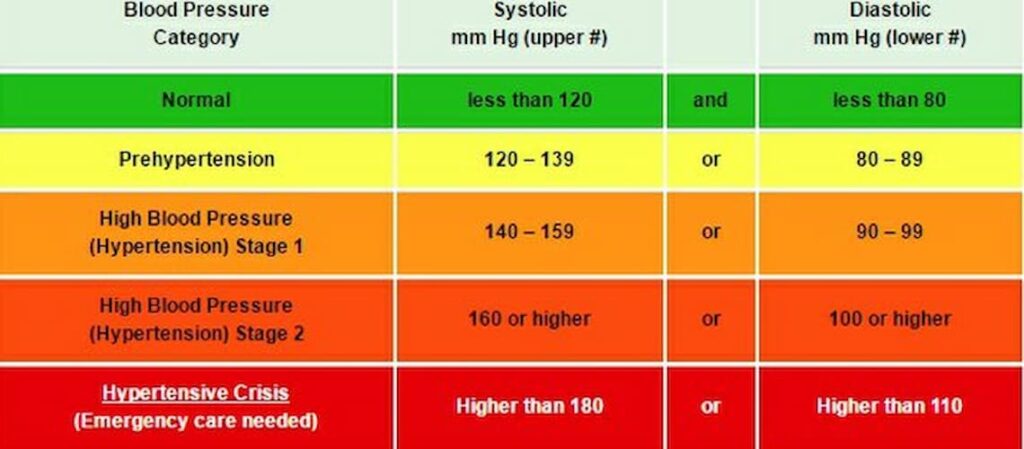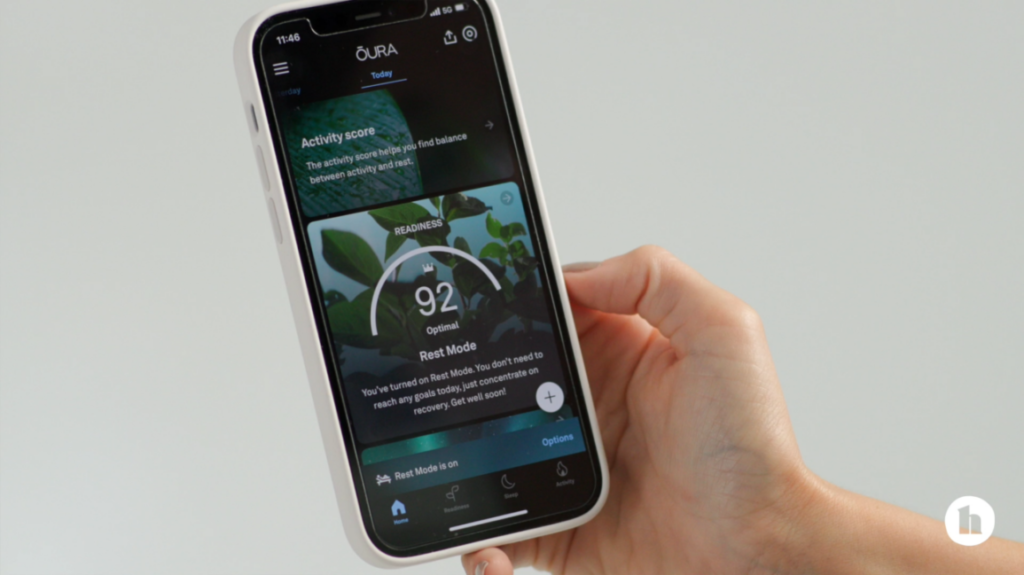The Oura Ring has become one of the most popular and talked-about wearable health devices in recent years. Its sleek, lightweight design and advanced tracking capabilities make it an attractive option for those seeking to monitor their health in a non-intrusive manner. The Oura Ring provides insights into sleep quality, activity levels, heart rate variability, body temperature, and more. However, as with any wearable, many users wonder if the Oura Ring can track certain health metrics, such as blood pressure.
In this post, we’ll answer the question: “Does the Oura Ring track blood pressure?” We’ll explore the ring’s capabilities, its features related to cardiovascular health, and discuss how you can monitor your blood pressure with other devices that work alongside the Oura Ring. If you’re interested in understanding how the Oura Ring can fit into your health routine and how it measures certain metrics, this guide will provide valuable insights.

What is the Oura Ring?
Before diving into the specifics of blood pressure tracking, it’s important to understand what the Oura Ring is and what it tracks. The Oura Ring is a small, sleek wearable health tracker that fits comfortably on your finger, unlike the larger smartwatches or fitness bands. The device is equipped with advanced sensors that help monitor:
- Sleep tracking: Oura tracks your sleep stages, such as light, deep, and REM sleep, and provides insights into improving your sleep.
- Activity tracking: The Oura Ring tracks your steps, movement, calories burned, and offers feedback to help you stay active.
- Heart rate variability (HRV): Oura tracks your HRV, an indicator of recovery and stress levels.
- Body temperature changes: Oura monitors subtle deviations in body temperature, which can help detect early signs of illness or other changes in health.
The Oura Ring uses infrared sensors, accelerometers, and gyroscopes to track these various metrics. It’s a powerful tool for those looking to get a deeper understanding of their health, but many people wonder whether it also tracks blood pressure, a key indicator of heart health.

Does the Oura Ring Track Blood Pressure?
Currently, no, the Oura Ring does not track blood pressure. While the Oura Ring is highly effective at monitoring various aspects of your health, such as sleep, activity, heart rate variability, and body temperature, it does not have the technology to directly measure blood pressure. Blood pressure measurement requires specific sensors that measure the force of blood against your artery walls, which is not within the scope of what the Oura Ring is designed to do.
That being said, the Oura Ring offers several features that indirectly contribute to your cardiovascular health, and it can provide valuable insights into your overall wellness. If tracking your blood pressure is essential for you, you may need to use a separate device specifically designed for that purpose.
Why Doesn’t the Oura Ring Track Blood Pressure?
The Oura Ring is designed primarily to track biometric data related to sleep, activity, and overall wellness rather than specialized health metrics like blood pressure. Here are a few reasons why the Oura Ring doesn’t track blood pressure:
1. Design Limitations
Blood pressure measurement typically requires specialized sensors that can detect the force of blood against artery walls. This requires cuff-based devices or more advanced technologies like optical sensors or oscillometric methods, which are not present in the Oura Ring’s design. The Oura Ring is built to be small, lightweight, and non-invasive, which is why it prioritizes sensors that track heart rate, sleep, movement, and temperature.
2. Battery Life and Energy Efficiency
The Oura Ring is designed to be worn 24/7, offering up to 7 days of battery life on a single charge. Integrating blood pressure monitoring would require additional sensors that could drain the battery quickly, reducing the ring’s overall efficiency. As such, the ring focuses on metrics that are achievable with its energy-efficient design.
3. Oura Ring’s Focus on Sleep, Activity, and Recovery
Oura’s primary focus is on optimizing your sleep and recovery. Blood pressure monitoring requires continuous or regular measurements, and adding this feature might detract from the ring’s performance in other areas, such as heart rate variability or sleep tracking, which are more central to its design.
How Can the Oura Ring Help Monitor Cardiovascular Health?
Although the Oura Ring does not directly track blood pressure, it provides other metrics that can help monitor your cardiovascular health. By tracking sleep, activity, and heart rate, the Oura Ring can offer insights into your overall heart health. Let’s take a closer look at how Oura tracks important metrics related to your cardiovascular system:
1. Heart Rate Monitoring
The Oura Ring continuously tracks your heart rate throughout the day and night, using infrared sensors to measure the amount of light that passes through the skin. This allows the ring to track resting heart rate, heart rate variability (HRV), and changes in heart rate during activity.
A low resting heart rate and high HRV generally indicate good cardiovascular health, while high resting heart rate or low HRV can signal stress or other health issues. These insights can help you understand how well your cardiovascular system is functioning, even though the ring doesn’t measure blood pressure directly.
2. Heart Rate Variability (HRV)
Heart rate variability is an important indicator of cardiovascular health and recovery. It refers to the variation in time between heartbeats, and a higher HRV typically indicates better recovery, lower stress levels, and overall good health. The Oura Ring tracks HRV continuously, providing a valuable tool for monitoring stress, sleep, and overall health.
3. Activity and Movement Tracking
Oura tracks your daily activity, including steps taken, calories burned, and intensity of movement. Regular physical activity is crucial for maintaining healthy blood pressure, and the Oura Ring can help you stay on track with daily movement goals. By encouraging movement, the Oura Ring helps you build a healthier lifestyle, which can positively impact your cardiovascular health over time.
4. Sleep Monitoring
The Oura Ring tracks your sleep stages and provides insights into the quality and duration of your sleep. Poor sleep quality can contribute to elevated blood pressure, so maintaining a healthy sleep routine is important for heart health. By improving your sleep habits, you can potentially improve your blood pressure and overall well-being.
How Can You Track Your Blood Pressure Alongside the Oura Ring?
If tracking blood pressure is a priority for you, there are several options for combining the Oura Ring with devices that can monitor your blood pressure. While the Oura Ring excels at tracking other health metrics, it is not equipped with the necessary sensors to measure blood pressure. Fortunately, there are several ways to measure blood pressure alongside using the Oura Ring:
1. Wearable Blood Pressure Monitors
There are wearable devices designed specifically for blood pressure monitoring, which you can use in conjunction with the Oura Ring. Some devices, such as the Omron HeartGuide or Withings BPM Connect, allow for continuous or regular blood pressure readings and sync the data with your phone or other health apps. These devices typically use inflatable cuffs or optical sensors to measure blood pressure, providing an easy way to track this important metric alongside your Oura Ring data.
2. Traditional Blood Pressure Cuffs
If you prefer a more traditional approach, manual or digital blood pressure cuffs can provide accurate readings. While they require you to take measurements at specific intervals, they can still be a valuable tool for tracking blood pressure in conjunction with the Oura Ring’s other health data. Many of these devices now offer connectivity with health apps, allowing you to sync the data with your smartphone for easy monitoring.
3. Smartwatches with Blood Pressure Monitoring
Some advanced smartwatches and fitness trackers come equipped with blood pressure monitoring features, such as the Samsung Galaxy Watch 3 or the Fitbit Charge 5. These devices can provide a more integrated approach to health tracking, measuring heart rate, HRV, sleep, and blood pressure all in one device. While they are bulkier than the Oura Ring, they may be a good option for those who want comprehensive health tracking.
Why Should You Track Blood Pressure?
Blood pressure is a crucial indicator of your cardiovascular health. High blood pressure (hypertension) can lead to serious health issues, including heart disease, stroke, and kidney damage. Tracking your blood pressure regularly is important for understanding your heart health and taking preventive measures if needed. Monitoring other metrics such as heart rate and HRV can help provide additional context to your cardiovascular health.
Conclusion
In conclusion, the Oura Ring does not track blood pressure. While it offers a wide range of features for tracking sleep, activity, heart rate, HRV, and body temperature, it lacks the sensors necessary to directly measure blood pressure. However, the Oura Ring provides valuable insights into your overall heart health by tracking other metrics that are closely linked to cardiovascular function.
If tracking blood pressure is a key priority, there are several options available, including wearable devices, traditional cuffs, and smartwatches that offer blood pressure monitoring. Using these devices alongside the Oura Ring can provide a comprehensive view of your health and help you make informed decisions about your well-being.
Meta Description: Wondering if the Oura Ring tracks blood pressure? Learn everything about how the Oura Ring monitors heart health, and find out how to track your blood pressure alongside using the Oura Ring.
